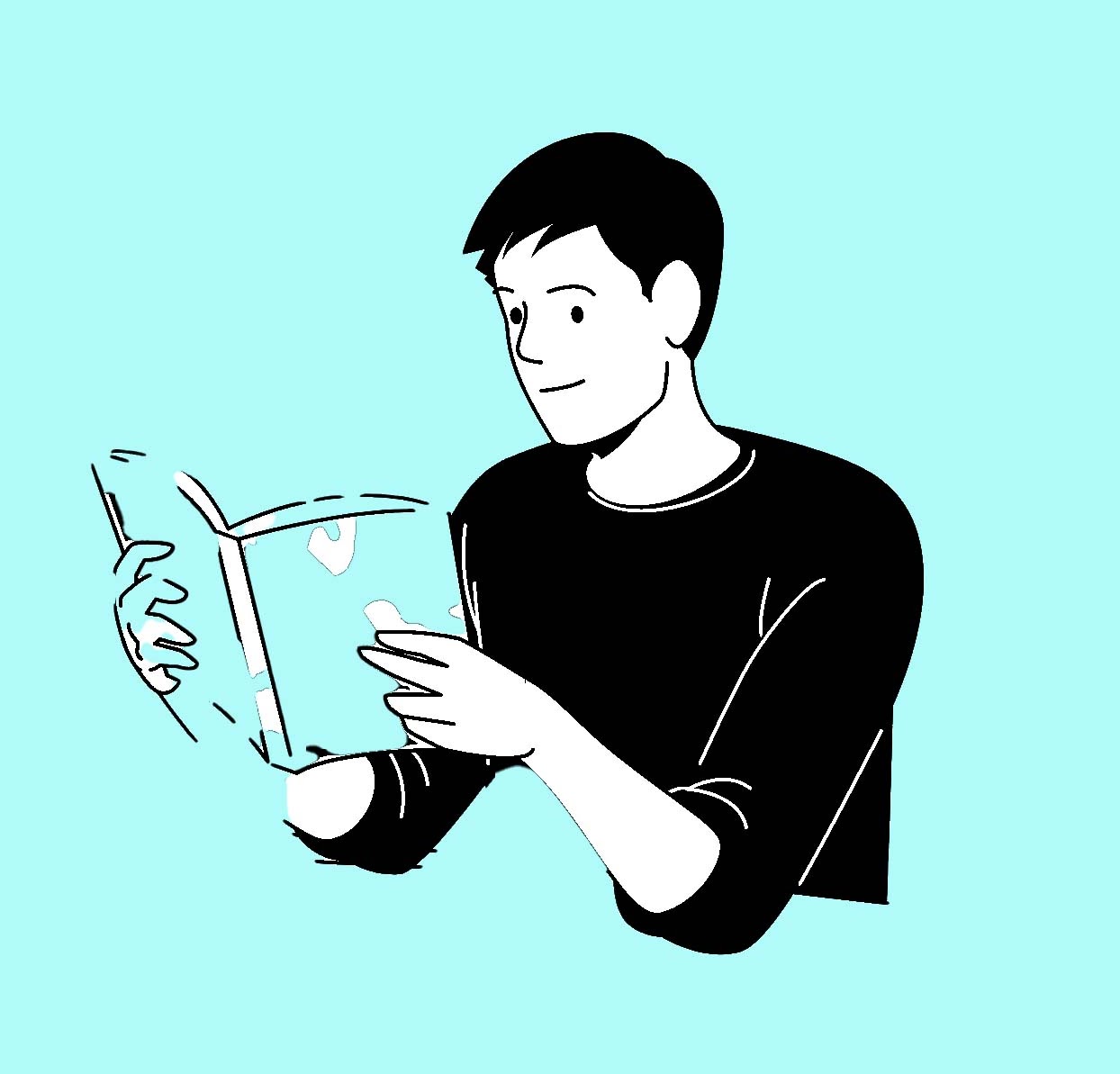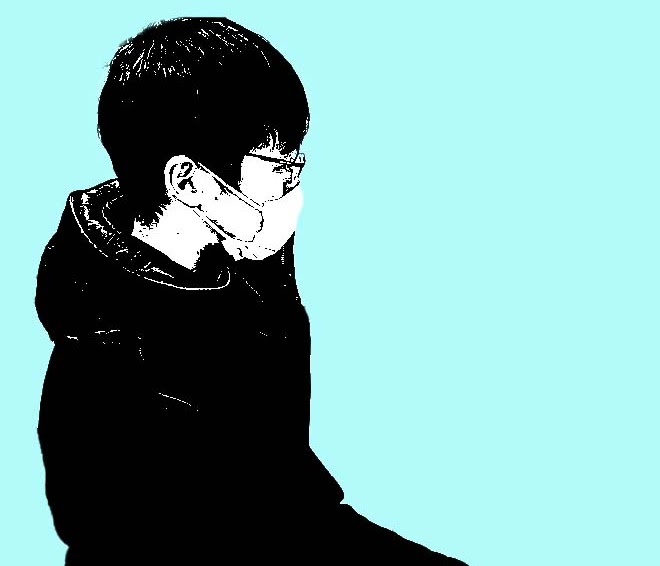Student Voices Student Voices

2022年度卒 修士(東京理科大学, 理工学部, 電気電子情報工学科)
◆志望理由
- 電力システムに関する研究に興味があり、電力業界への就職を考えていたからです。
◆就活や研究以外の活動とのバランス
- 研究以外にやったことは就活と資格の勉強です。シミュレーション系の研究をやっていて結果が出るまでに数時間かかるので、その間の時間に資格の勉強をしたりしていました。就活が忙しい時期などは事前に教授に伝えておけば問題ないと思います。
◆研究テーマ
- B4:太陽光発電の出力予測
- M1~2:深層強化学習を使用した蓄電池の運用
◆研究生活(普段何をしているか)
- ほぼリモートで家で作業しています。コアタイム等はありません。ただ、ずっと家にいるのはつらいので、研究室には週1、2回行きます。
◆研究室の特徴
- 黙々と研究を進めている人が多いので、会話量は少なめです。ですが、教授や先輩に質問しにくいということはありません。また、飲み会などの研究室のメンバーで集まって何かするといったことはほぼありません。自主的にやりたい人がやっています。
◆研究指導
- 週に1回研究テーマ毎にミーティングをします。その際に1週間の研究進捗を資料にまとめてお話しします。毎週のノルマなどはないです。なので、結果が出てなくても何も言われませんが、自分でどんどん進める人と進めない人で差は出てくると思います。
◆学会, 論文等
ノルマ等はありません。個人の自由で発表・論文作成をします。私は3年間で2回の学会発表をしました。
-
塚崎紀貴, 小平大輔, 近藤潤次, "深層強化学習を使用した蓄電池の最適運用手法", 令和4年電力技術/電力系統技術合同研究会, 2022年8月. link
-
塚﨑 紀貴, 呉 大輝, 小平大輔, 亀田 裕介, 近藤 潤次, “機械学習を使用した予測と地理的な発電分布の変遷からの予測を組み合わせた太陽光発電出力予測手法,”, 電気学会全国大会, 2021年3月. link
◆教員との距離感・相性について
- とても話しやすい方だと思います。鬼のように怒ったり、質問攻めをしたりとかはありません。質問など気軽に出来ます。

2021年度卒 学部 -> 2022年度 修士(東京理科大学, 理工学部, 電気電子情報工学科)
◆志望理由
- 機械学習や統計学を勉強したいと考え、志望しました。
◆就活や研究以外の活動とのバランス
- 就活では、メーカーやIT等幅広い選択肢があると思います。研究のノルマやコアタイム等がないため、就活にも時間をかけることが出来ます。
◆研究テーマ
- 太陽光発電の出力予測
◆研究生活(普段何をしているか)
- コードを書いたり、論文を読んだりしています。シミュレーション系でパソコンがあればどこでもできるので、研究室、図書室、自宅等、好きな場所で研究しています。
◆研究室の特徴
- かなりホワイトです。自由主義だと思います。自主性が求められます。
◆研究指導
- 個人に合わせた指導をしてくださります。研究熱心な人には、必要以上の指導を、そうでないひとには必要十分な指導を。
◆学会, 論文等
希望すれば沢山の発表機会を得られます。国内、国際学会、論文等、他の研究室では得られなかった経験だと思います。
-
H. Yamamoto, J. Kondoh, and D. Kodaira, “Assessing the Impact of Features on Probabilistic Modeling of Photovoltaic Power Generation,” Energies, vol. 15, no. 15, p. 5337, Jul. 2022. link
-
H. Yamamoto, T. Kure, J. Kondoh, and D. Kodaira, “Multi-point forecasting of photovoltaic power generation by light gradient boosting machine,” in Grand Renewable Energy proceedings, 2022, p. 9. link
-
山本 裕己, 小平 大輔, 近藤 潤次, “太陽光発電の出力予測における特徴量選択、及び信頼予測区間“, 第17 回電気学会東京支部千葉支所研究発表会, 2021年11月.
◆教員との距離感・相性について
- 良い意味で大学の先生感がしないです。気さくな方だと思います。研究はもちろん、就活等の相談も乗ってもらっています。先輩や同期は結婚について話していました。
◆受賞
SICE優秀学生賞

2022- 2023年度 修士(筑波大学)
◆志望理由
- 機強電の中でも電力系の研究に興味があったので志望しました。
◆就活や研究以外の活動とのバランス
- 研究を最優先させるスタイルではないので、就活などの個人的な都合にも柔軟に対応してもらえます。コアタイムがないので自分の好きな時間に研究も進められます。
◆研究テーマ
- 収益向上を目指した強化学習ベースの蓄電池制御手法の検討
◆研究生活(普段何をしているか)
- コードを書いてシミュレーションをします。リモートでも作業可能ですが、モニターがあって便利なのと、気持ちの切り替えのために研究室に来て作業をしています。
◆研究室の特徴
- 自由です。研究も自分のペースでやることが出来ます。逆に言えば気付いたら手遅れになるリスクもあるので、管理されないと進められないタイプの人には向いてません。
◆研究指導
- 研究ノート代わりのパワポを週1回程度送ります。ノルマはないので、進捗がなくても何も言われませんし、「失敗した」というのも進捗として見てくれます。基本はオンラインですが、必要であれば対面での打ち合わせもやってもらえるので指導不足ということはありません。
◆学会, 論文等
特にノルマはありませんが、大学院の卒業要件として、最低1回の学会発表があります。そのつもりがなくても国際学会への参加を求められ正直かなり嫌でしたが、結果的に自身の成長につながったので良かったです。
-
T. Goto and D. Kodaira, "Optimal Control of Battery System by Reinforcement Learning Considering Profitability", IEEE 2023 1nd International Conference on Power and Renewable Energy Engineering (PREE), Tokyo, in press
◆教員との距離感・相性について
- とても接しやすく、大学の先生にありがちな壁は感じません。連絡手段はメールではなくSlackを使うので、気軽に質問、相談できるのがとてもいいと思います。

2024年度 修士(筑波大学)
1. 論文執筆全体に関する質問
Q: 論文を執筆しようと思ったきっかけは何ですか?
- A: 「研究者としての実績が欲しかったからです。あとは面白そうだったからです」
Q: 論文執筆の過程で一番大変だったことは何ですか?
- A: 「”論文の常識”を知ることが最も大変でした。細かいレイアウトや参考文献の挿入方法など、読者としては気づかずとも著者としては考えてこなさなければならないことが予想以上に多かったです」
Q: 論文執筆にどれくらいの時間がかかりましたか?
- A: 「卒業研究の内容を国際論文用に拡張して書き換えました。論文の執筆自体にかかったのは半年程度です」
2. 技術的な質問
- A: 「英語はchatGPTがあるので出力が間違っているかどうかを判断できる程度の基礎力があれば問題ありません。むしろ大事なのは日本語での論文の構成能力だと思います」
- A: 「最初に投稿フォーマットを読み込むのをおすすめします。字数やフォントなど、後から変更するのはめんどくさいので」
- A: 「いかにポイントを抑えるかです。その上でツッコまれる疵を無くすようにブラッシュアップするのがいいと思います」
3. 心構えやモチベーションに関する質問
- A: 「とても嬉しかったです。ゲームをクリアしたような感覚」
- A: 「就職や博士課程進学の際に貴重な実績となります。他の人と差がつくので奨学金を借りているなら免除申請を通す確率を上げられます」
4. 大学3年生へのアドバイス
- A: 「論文を読む習慣はつけておくとよいです。読むだけじゃなくて、どうやって情報を整理して保管するのか、使うツールも含めて試行錯誤しとくと後で便利です。あとプレゼンに備えて自分が見ててわかりやすいと思った資料は保管しておくとこれも後で便利になります」
5. 指導教員とのコミュニケーションに関する質問
- A: 「最初はメールや週に一度の研究ミーティングでやりとりをしました。論文執筆が本格化してからは、草稿を共有してフィードバックをいただくことが多かったです。指導教員のアドバイスは具体的で、論文の常識を知るのに非常に役立ちました」
6. 指導教員とのポジティブな経験
- A: 「最初に俯瞰的な視点を持たせてくれたことが非常にありがたかったです。参考になるサイトを紹介していただき、今後のスケジュール感とゴールとなる論文像を頭に入れた状態で取り掛かることができました」
7. 指導教員とのネガティブな経験
- A: 「特にありませんが、小平先生はこちらのスケジュールに合わせてくれる分、締切の認識が甘くなることがあります。やるべきことを後回しにしない覚悟が必要です」

Graduated in 2022 Master's degree(Tokyo University of Science, Faculty of Science and Technology Department of Electrical Engineering)
◆Reason for applying
- I was interested in research on electric power systems and was thinking about working in the electric power industry.
◆Balance with activities other than job hunting and research
- What I did besides research was job hunting and studying for certifications. I was doing research on simulation systems, and it takes several hours to get the results, so I spent the time in between studying for my qualifications. I think there is no problem if you let your professor know in advance when you are busy job hunting.
◆Research Themes
- B4:太陽光発電の出力予測
- M1~2:深層強化学習を使用した蓄電池の運用
◆Research life (what I usually do)
- I work mostly remotely from home. There is no core time. However, it is hard to stay at home all the time, so I go to the lab once or twice a week.
◆Characteristics of the laboratory
- The amount of conversation is low because many people are working on their research silently. However, it is not difficult to ask questions to professors or seniors. Also, there are almost no drinking parties or other gatherings of lab members. People who want to do things voluntarily do them.
◆Research Guidance
- We will meet once a week for each research topic. At that time, we will discuss the week's research progress in a document. There are no weekly quotas. Therefore, nothing is said even if you don't show results, but I think there will be a difference between those who progress more and more on their own and those who don't.
◆Conferences, Papers, etc.
There are no quotas, etc. Individuals are free to make presentations and write papers. I have presented at two conferences in three years.- 塚崎紀貴, 小平大輔, 近藤潤次, "深層強化学習を使用した蓄電池の最適運用手法", 令和4年電力技術/電力系統技術合同研究会, 2022年8月. link
-
塚﨑 紀貴, 呉 大輝, 小平大輔, 亀田 裕介, 近藤 潤次, “機械学習を使用した予測と地理的な発電分布の変遷からの予測を組み合わせた太陽光発電出力予測手法,”, 電気学会全国大会, 2021年3月. link
◆Regarding distance and compatibility with faculty
- I think he is very easy to talk to. He does not get angry like an ogre or ask a lot of questions. You can feel free to ask questions.

Graduated in 2021 Undergraduates -> Graduated in 2022 Master's degree(Tokyo University of Science, Faculty of Science and Technology Department of Electrical Engineering)
◆Reason for applying
- I wanted to study machine learning and statistics.
◆Balance with activities other than job hunting and research
- In job hunting, you will have a wide range of options such as manufacturers, IT, etc. Since there are no research quotas, core hours, etc., you can spend more time on your job search.
◆Research Themes
- Solar power output forecasting
◆Research life (what I usually do)
- I write code and read papers. I can do my research wherever I want, such as in the laboratory, library, or home, because it is simulation-based and can be done anywhere there is a computer.
◆Characteristics of the laboratory
- It is quite white. I think it is liberal. Autonomy is required.
◆Research Guidance
- He provides personalized guidance. For those who are research-oriented, he gives more guidance than necessary; for those who are not, he gives just enough.
◆Conferences, Papers, etc.
If you wish, you will have many opportunities to make presentations. National and international conferences, papers, etc., are experiences that you could not get in other laboratories.
-
H. Yamamoto, J. Kondoh, and D. Kodaira, “Assessing the Impact of Features on Probabilistic Modeling of Photovoltaic Power Generation,” Energies, vol. 15, no. 15, p. 5337, Jul. 2022. link
-
H. Yamamoto, T. Kure, J. Kondoh, and D. Kodaira, “Multi-point forecasting of photovoltaic power generation by light gradient boosting machine,” in Grand Renewable Energy proceedings, 2022, p. 9. link
-
山本 裕己, 小平 大輔, 近藤 潤次, “太陽光発電の出力予測における特徴量選択、及び信頼予測区間“, 第17 回電気学会東京支部千葉支所研究発表会, 2021年11月.
◆Regarding distance and compatibility with faculty
- I don't feel like a college teacher in a good way. I think he is a friendly person. He gives me advice not only on research, but also on job hunting, etc. My seniors and peers talked about marriage.
◆Award
- SICE(Best Student Award )

2022- 2023 Master's degree (University of Tsukuba)
◆Reason for applying
- I wanted to apply because I was interested in research on electric power systems .
◆Balance with activities other than job hunting and research
- Because The style is not one that puts research first, we can be flexible to accommodate your job hunting and other personal needs. There are no core hours, so research can be conducted at your own leisure.
◆Research Themes
- Reinforcement Learning-Based Battery Control Methodology for Improving Profitability
◆Research life (what I usually do)
- I write code and run simulations. I can work remotely, but I come to the lab to work, both for the convenience of having a monitor and for a change of pace.
◆Characteristics of the laboratory
- Freedom. You can do research at your own pace. Conversely, there is a risk that it will be too late if you find out, so it is not suitable for the type of person who cannot proceed without being managed.
◆Research Guidance
- We will send you a PowerPoint presentation in lieu of research notes about once a week. There are no quotas, so you will not be told anything if you do not make progress, and “failure” is also considered as progress. Basically, we are online, but if necessary, we can have face-to-face meetings, so there is no lack of guidance.
◆conferences, Papers, etc.
Although there is no particular quota, there is at least one conference presentation as a graduation requirement for graduate school. To be honest, I quite disliked being asked to participate in international conferences even if I had no intention of doing so, but I am glad that it led to my personal growth as a result.-
T. Goto and D. Kodaira, "Optimal Control of Battery System by Reinforcement Learning Considering Profitability", IEEE 2023 1nd International Conference on Power and Renewable Energy Engineering (PREE), Tokyo, in press
◆Regarding distance and compatibility with faculty
- He is very easy to deal with and I don't feel the barriers that are common with college professors. I think it is great that they use Slack instead of email for communication, so I can easily ask questions and consult with them.

2024 Master's students (University of Tsukuba)
- A:I wanted to have a track record as a researcher. I also thought it would be interesting.
- A: “The hardest part was learning about the 'common sense' of a paper. There were more things than I expected that I had to think about as an author, such as detailed layout and how to insert references, even if I didn't realize it as a reader.
- A: I rewrote the content of my thesis, expanding it for the international paper. The dissertation itself took me about six months to write.”
- A: The English language is not a problem as long as you have the basic skills to judge whether the output is wrong or not because of the chatGPT. Rather, what is important is the ability to structure papers in Japanese.”
- A: I recommend that you load the submission format first. It's a pain to change things like font size, font, etc. afterwards.
- A: It's how to get the point across. I think it's a good idea to brush up on that so as to eliminate the flaws that get tweaked.”
- A: I was very happy. I felt like I had just completed the game.
- A: It is a valuable achievement for employment and doctoral studies. It sets you apart from others and increases your chances of getting through the waiver process if you owe a scholarship.
- A: It's good to get into the habit of reading papers. Not only reading, but also learning through trial and error how to organize and store information, including the tools you use, will come in handy later. Also, in preparation for presentations, you should keep materials that you find easy to understand, as this will also come in handy later.
- A: At first, we communicated via email and weekly research meetings. Once the dissertation writing was in full swing, we often shared drafts and received feedback. My advisor's advice was specific and very helpful in getting common sense for my dissertation.
- A: I really appreciated the fact that you gave me a bird's eye view at the beginning. He introduced me to some helpful websites, and I was able to get started with a sense of the future schedule and a goal paper image in mind.
- A: There is nothing in particular, but because Kodaira Sensei is so accommodating to our schedule, he is sometimes lax in recognizing deadlines. You need to be prepared not to put off what needs to be done.”